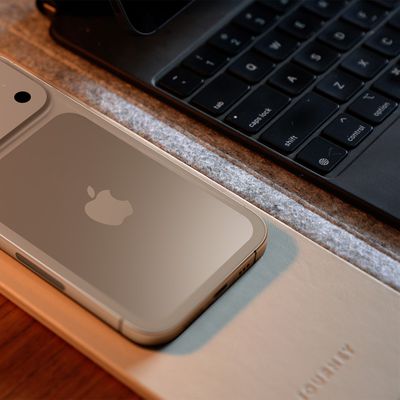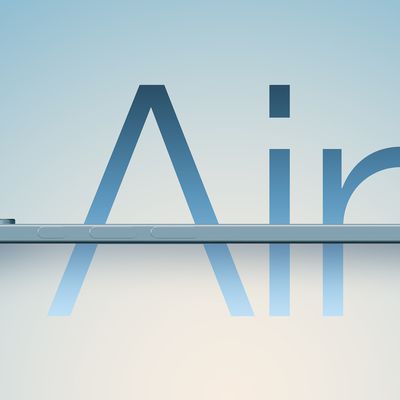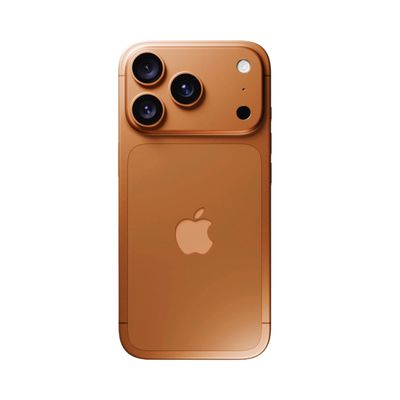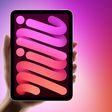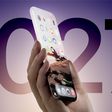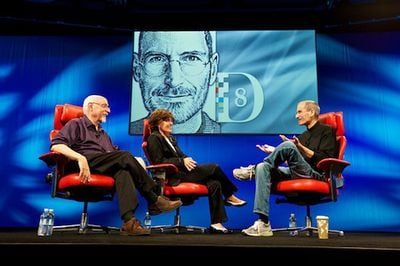
Source: Asa Mathat | All Things Digital
Apple CEO Steve Jobs is at the D8 Conference this evening, participating in an opening session involving a sit-down interview with All Things Digital's Kara Swisher. John Paczkowski is officially liveblogging tonight's interview while Engadget and CNET are also offering live coverage, and we'll be keeping track of any significant revelations coming out of the event. While Jobs is not expected to make any product announcements, the format will likely allow for some informal discussion and insight into Apple and Jobs that could prove interesting.
The opening session is just getting underway, with News Corp. CEO Rupert Murdoch currently giving some opening remarks before turning things over to Walt Mossberg and Kara Swisher.
Jobs' Comments:
- On Apple's market capitalization passing Microsoft's: "It doesn't matter very much. It's not what's important. It's not what makes you come to work in the morning...It is a little surreal."
- On his return to Apple in the '90s: "Apple was about 90 days from going bankrupt. It was much worse than I thought back then. I expected all the good people had left, but I found many of them still there, and I asked them, "Why are you still here?" They said it was because they believed in Apple."
- On the Adobe Flash controversy: "Apple doesn't have the resources others have, and we have to choose which horses to ride. We try to ride those that are on the way up. If you choose wisely, you save yourself an enormous amount of work." Points to the move to 3.5-inch floppies, the discontinuation of floppy drives, removal of serial and parallel ports, adoption of USB, removal of optical drive in MacBook Air. "Sometimes people call us crazy."
"We didn't start off to have a war with Flash. We made a technical decision. But it wasn't until the iPad that Adobe raised a stink about it." Jobs' "Thoughts on Flash" was a response made only after Apple grew tired of Adobe trashing it in the press. "We have the courage of our convictions. We're going to take the heat because we want to make the best products in the world for our customers. If we succeed they'll buy them, and if we don't they won't. So far they're liking the iPad...we're selling one every three seconds."
- On email correspondences: Refers to exchange with Gawker's Ryan Tate..."He never identified himself as a journalist. I was up late and working and this guy starts sending me obnoxious emails... and I wanted to straighten this guy out. I'm just enough of a sucker... and he publishes it!"
- On the lost next-generation iPhone: "There's an ongoing investigation, but I can tell you what I do know. To make a wireless product, you have to test it. You can't just keep it in the lab. There's a debate about whether it was left in a bar or stolen out of his bag, but the person who found it tried to sell it. It's a great story...it's got theft, buying stolen property, extortion. Probably sex in there somewhere...someone should make a movie out of this.
- On Foxconn suicides: "We're all over this. We do one of the best jobs in any industry of understanding suppliers' working conditions. Foxconn is not a sweatshop, it's a factory. 13 suicides out of 400,000 workers this year is less than the U.S. rate of 11 per 100,000, but it's still troubling. We're trying to understand things right now and we have people over there."
- On the future of Apple and "platform wars" with Microsoft, Google, Facebook, etc.: "I don't see it. We never saw ourselves in a platform war with MSFT, and maybe that's why we lost. We think about the competition, but we're focused on building a better product."
- On WebKit, particularly for mobile devices: "Almost every modern browser is based on it...Nokia, Palm, Android, RIM. We've created a real competitor to Internet Explorer. It's #1 in mobile."
- On Google: "They decided to compete with us. We didn't go into the search business!" Not going to remove Google from the iPhone. "We want to create better products than them. If people like our products, we get to come to work for tomorrow. Just because we're competing doesn't mean we have to be rude."
- On acquisition of Siri: "It's an AI (artificial intelligence) company. We're not going into the search business."
- On AT&T's network: "iPhone is the first phone where we separated the carrier from the hardware. They worry about the network, while we worry about the phone. They're improving, but they do have some issues. Remember that they're handling way more traffic than all other competitors combined."
- On possible expansion to other U.S. carriers: "There might be advantages." When asked if it might happen in the near future, he responds, "You know I can't comment on that." And getting back to AT&T specifically, "We changed the business model for phones, and AT&T took a big chance with us."
- On tablets: "We did something similar to what we did with the iPhone. We started from scratch and threw out the existing paradigm of handwriting recognition." Acknowledges that tablet project actually came before phone, but realized that phone was more important.
- On the iPad's ability to save journalism: "The foundation of a free society is free press, and some of the newspapers are in real trouble. I don't want to see us descend into a nation of bloggers. I'm all for anything that can help newspapers with new ways of expressing themselves and getting paid. We need editorial oversight now more than ever." Jobs notes that iPad opens up way to offer much more than print or static webpages. But should charge less than print... "The biggest lesson Apple has learned is price it aggressively and go for volume."
- On Apple's entry into eBooks causing price increases: "The new structure allows pricing to be more sensitive to consumers and should allow prices to eventually go down."
- On whether tablets will replace PCs: Compares to vehicles..."When we were an agrarian nation, all cars were trucks because that's what you needed on the farms. But cars eventually became more prevalent is people moved to cities. PCs will be like trucks...they are still going to be around, but there is a transformation coming, and it will make some people uneasy. Is it the iPad? Who knows? Will it be next year or five years from now?"
- On the iPad: "People laugh at me because I describe the iPad as magical. We've stripped away what's between you and the computer. We're just scratching the surface with the kinds of apps that can be built." Regarding the lack of a keyboard hindering content creation, "When I am going to write that 35-page analyst report I am going to want my bluetooth keyboard. That's one percent of the time. These machines will grow to be able to more things...time takes care of lots of these things. Productivity apps, video editing, etc."
- On flexible displays: "We don't have the technology and it's not on the horizon. A lot of people have tried and are continuing to try, but probably several years away still."
- On control of the App Store ecosystem: "We have two platforms we support. One is completely open and uncontrolled and that is HTML 5. We support HTML 5. We have the best support for HTML 5 of anyone in the world. Then there's the curated App Store platform. We've got a few rules (function as advertised, can't crash, can't use undocumented APIs), but we approve 95% of apps within a week...thousands per week."
Regarding rejected political cartoon content, Jobs notes, "We had a rule that said you can't defame people. By definition, they defame people. We didn't think of that. That was an unintended consequence. We had actually changed the rule several months earlier, but made a mistake. We're doing the best we can and fixing mistakes as fast as we can. But sometimes people lie and run to the press. We take it on the chin and don't call them out."
- On Jobs' typical workday: "I have one of the best jobs in the world. I get to come in and work with some of the most brilliant people in the world. We play in the best sandbox. We're structured like a start-up. We're the biggest start-up on the planet. And we all meet once a week to discuss our business...and there's tremendous teamwork at the top and that filters down to the other employees.
- On the next ten years: "You know, when this whole thing with Gizmodo happened, I got advice from people who said 'you gotta just let it slide, you shouldn't go after a journalist just because they bought stolen property and tried to extort you.' And I thought deeply about this, and I concluded the worst thing that could happen is if we change our core values and let it slide. I can't do that. I'd rather quit."
"The company is a little more experienced and a little more beat up, but Apple is still the same company it was 5 or 10 years ago in terms of values. We're still trying to build the best products. Nothing makes my day more than getting a random email from someone talking about how cool the iPad is. That's what keeps me going. That's what kept me going back then, and now, and will keep me going in the future."
- On entering the ad business: "We want to help our developers make money. We're not going to make much money on this. People's behavior on phones is very different than on computers...less searching and more apps. So you put ads in the apps to help developers make money. Sure, someone else could do it, but they're not. We can build it right into the OS."
- On user privacy: "We take privacy very seriously." Points to location-based apps having to call up iPhone OS panel to request permission to access data. "That's one of the reasons we have the curated app store. A lot of the people in the Valley think we're old fashioned about this. But we take it seriously."
Q&A
- On whether he would change anything about his 2005 Stanford commencement speech: "Probably I would just turn up the volume on it. The last few years have reminded me that life is fragile."
- On ad analytics controversy: "Some company called Flurry had data on devices that we were using on our campus -- new devices. They were getting this info by getting developers to put software in their apps that sent info back to this company! So we went through the roof. It's violating our privacy policies, and it's pissing us off! So we said we're only going to allow analytics that don't give our device info -- only for the purpose of advertising." When pressed about legitimate uses of analytics data on device usage, Jobs noted that Apple would be willing to sit down with analytics firms, "but it's not today".
- On balance shifts in content: "The way we market movies is changing. It used to be TV advertising with trailers, but now it's the Web. Content providers used to think their customers were movie theaters, record stores, etc. But they need to recognize that it's the viewer and you need to let them watch whenever, wherever they want. It's starting to happen in television, and even now in film."
- On content syncing to the cloud: "We need to better on letting people share content amongst their own various devices." When pressed on a timeline, Jobs noted, "We're working on it."
- On iPhone dropped calls: "Credible people tell me that things get worse before they get better as the carriers switch things around to make improvements. If you believe that, things should get a lot better soon. Should be better by end of summer. We'll see."
- On HDCP/content protection: "The content providers are afraid of a Napster repeat, and they set the rules. Apple tries to persuade, but if they can't convince providers, they have to either accept the limitations or go without the content."
- On vision for social gaming on iPhone OS: "Clearly iPhone plus iPod touch have created a new class of gaming. It's a subset of casual gaming. But it's surprising how good some of them are. They're almost as good as console gaming in terms of graphics. Console games the software is $30 or $40 a game. It's cheaper on iPhone, so the market has exploded."
- On the future of television: "Subsidized set-top boxes have squashed innovation because no one wants to pay for separate boxes...ask TiVo, Roku, us, Google in a few months. The set-top box needs to be torn up and redesigned to get people things they way they want them. And there's no go-to-market strategy for that. With the iPhone, and now the iPad, we could partner with carriers, but television is very balkanized...everything is local.
==End of Session==


